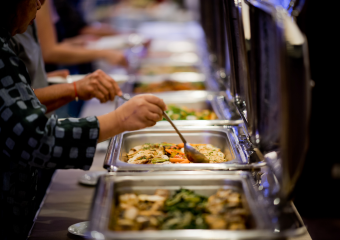Government regulation delivers another hit to BC restaurants – RestoBiz

By Joseph Brown
In Canada last year, more restaurants closed than opened. It is a business where margins are tight, costs are rising, and customers are feeling the pinch of inflation. Many in the food service and hospitality sector are still recovering from the pandemic that forced many of our businesses to the brink. We have had to diversify in order to succeed, and third-party delivery platforms have been an important part of expanding business opportunities to bring more variety and choice to customers.
RELATED: Will 2024 be easier for operators?

British Columbia has passed new legislation that impacts “gig workers” like delivery workers in the province. Specifically, they are implementing a premium, higher minimum wage for delivery workers. Ultimately, this will not only cost me and businesses like mine; it will also cost consumers and the people who work in the so-called “gig economy.”
When our patrons couldn’t eat in dining rooms during COVID, restaurants turned to pre-prepared packaged food and sent it to their doorsteps. The ability to get our dining service to their front doors was a saving grace in one of the darkest hours in our industry’s history.

That model of food delivery is now, more than ever, critical to our industry’s survival. The restaurant sector is already on shaky footing, and every time the government steps in to regulate, it has a ripple effect.
A premium minimum wage for delivery workers will mean higher delivery fees for customers who are already struggling with the cost of living. That leads to fewer restaurant orders placed on the delivery apps, which hurts restaurant businesses. And it will ultimately impact the very delivery workers the regulation is trying to help, as they see deliveries — and earnings — slow down too. It will ripple across entire communities.
More than that, it’s just not a popular policy.

A recent poll found that while 60 per cent of British Columbians support the regular minimum wage for app-based employees, a plurality of 46 per cent are opposed to the government’s plan to set a premium minimum wage for the so-called gig economy.

When presented with arguments for and against a special minimum wage, twice as many British Columbians oppose this (55 per cent) rather than support it (28 per cent).
These findings are a clear indication that people are concerned about the impact of this measure, further driving up prices and limiting employment opportunities for delivery drivers.
However, while we strive to create an unforgettable experience in our restaurant, like others in our business we are serving a lot of people through delivery orders. They have become vital to the survival of restaurants, but these new regulations are set to slash this critical pillar for our growing business.
At a time when restaurants across the province are still rebounding from unprecedented adversity, we can’t afford another hit. If we take that hit, it would be naive to ignore the impact that will have on economic growth, tourism, and sustainability in communities across British Columbia.
Fair wages for workers is a hugely important issue, and I’m glad British Columbia already has one of the highest minimum wages in Canada. But there are so many restaurants like mine that depend on third-party delivery services to serve our communities and reach new customers. We want those employees to make fair wages, with strong demand for the service they offer in bringing our meals to customers at a reasonable cost. Now is not the time to enact new regulations that could create detrimental impacts on our businesses and our livelihoods.
We all want to continue to play our roles – creating, serving, and delivering delicious food and contributing to our local communities and economies. The province needs to consider the restaurant industry and discuss solutions that improve conditions for delivery workers, keep prices low for consumers, and preserve economic viability for the small businesses and restaurants that rely on these services.
Joseph Brown is the owner of Super Smash Burgers in Vancouver, BC. and a member of DashRoots, an advocacy network elevating the voices of local merchants, delivery workers, and consumers.





